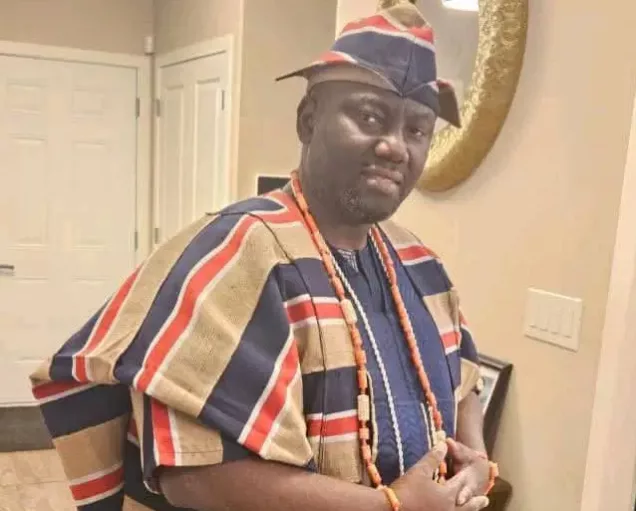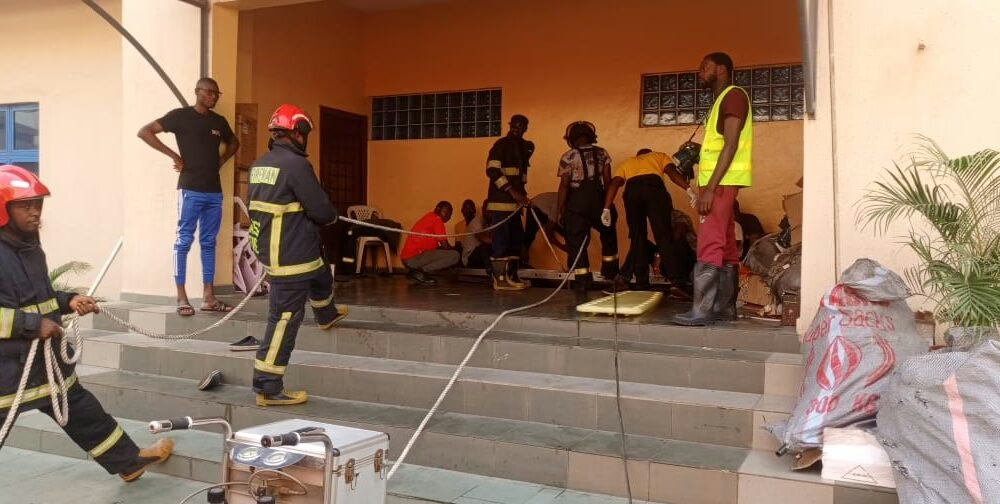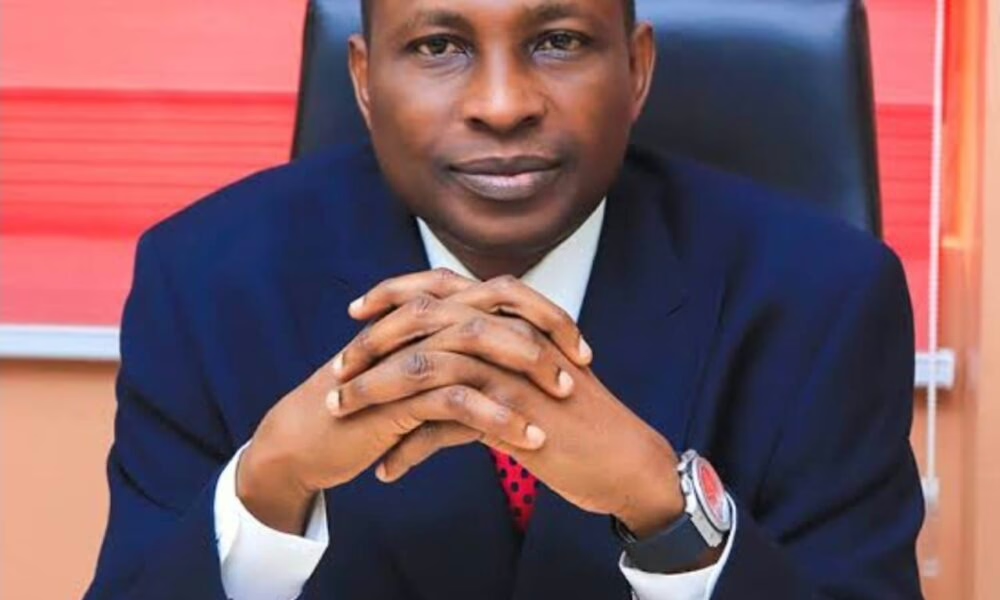By Sunday Ani
Former Akwa-Ibom State Resident Electoral Commission (REC) of the Independent National Electoral Commission (INEC), Mike lgini, in what looks like a poetic dirge, has sent words across to the late human rights activist and lawyer, Chief Gani Fawehinmi, detailing him about the latest development in Nigeria with regard to the upcoming general elections slated for February 25 and March 11, respectively.
In the letter released on the occasion of the 19th Annual Gani Fawehinmi Lecture, themed, “Free, fair and credible election as indispensable tool for national development,” Igini promised Fawehinmi that he, alongside a few others of his followers while he lived would not deviate from the path of fighting for equitable, just and fair society, even as he informed him that some of his followers had abandoned the ideals he stood for.
Igini informed Fawehinmi, popularly referred to as the Senior Advocate of the Masses (SAM) about the upcoming general elections, and the new 2022 Electoral Act, which according to him, would be a game changer.
He informed the late activist that many politicians are not happy and are agitated because of the new Electoral Act, which if and when implemented fully would retire many of them from politics. “We have blocked all known loopholes, both statutory and procedural, used for rigging elections such that the electoral misfortune of the past will no longer be possible. The new Electoral Act has a total of 153 provisions out of which the lawmakers accepted 48 of 91 proposals that the INEC sent, which included some of those provisions you complained about when you were alive,” he wrote.
He informed Fawehinmi that it is quite sad that know politicians have made a mockery of his legal battles up to the Supreme Court to ensure that electoral space was broadened to ensure citizens’ participation through the registration of political parties, as many of the new parties have become supporters club of the old parties. “They wait for the fallout of the primary of the main political parties, and field those who lost out as candidates. The two main political parties also sponsor them as party agents for conspiracy to share the unused ballot papers at the end of election. But, INEC has used the ICT process to block all those shenanigans,” he informed.
Sounding more poetic, Igini wrote, “May l also inform you happily that the new Electoral Act 2022 has repealed those obnoxious election rigging provisions that you objected to repeatedly but replicated in all successive Acts. Those provisions in the 2002 Electoral Act such as section 40 and 41, re-enacted in subsequent 2006, 2010 and 2011 Electoral Acts under different sections that politicians, in connivance with INEC Ad hoc staff, used to rig elections, have been taken care of by the latest 2022 Electoral Act.
“We have also succeeded, after 20 years of fight and struggle, in repealing section 52 that prohibited the use of technology in our elections. We are now using a device called Bimodal Voters Accreditation System (BVAS) and transmitting polling units’ results real-time to IREV for the Nigerian people. This system is the new game-changer that has brought unequal, tremendous energy of integrity and hope to our electoral process. This is the reason for the panic in the camp of the election riggers across Nigeria.”
Igini also informed the late activist how willing and prepared the youths are to take back their country from the political elite that have run the country aground and made life a living hell for them
He said: “Chief, more than any other time in the history of our country, there is an unprecedented level of awareness and consciousness by Nigerians about their power to use the ballot paper to change the story of the country for good. We have a total number of 94.5 million registered voters. Nigerians are fired up, particularly the youths, who are not smiling at all, over the state of the nation. They constitute the highest voting demography. They no longer play football during voters’ registration and collection of Permanent Voters Cards (PVCs). They are gearing up to tell the world that they will use their PVC in February and March elections to take over the country. We are hopeful they will make real their promise. Chief, even those elites that have been so comfortable in the past that don’t register to vote but watch CNN on Election Days, are no longer comfortable. They are all over the place collecting their PVCs and mobilizing people to vote in the forthcoming elections.”
He also told the late legal luminary that the almighty BVAS had come under threat by some unscrupulous politicians who have engaged some lawyers hanging around in various courts to secure order from any willing judge that could be compromised to give an order to stop its use in the forthcoming election. “Just as you know before you left us, there is no guarantee that any of our colleagues in the Bench who is professionally, ethically and morally challenged, will not willingly grant such order at the eleventh hour to stop the use of BVAS and result upload. We remember how Justice Bassey lkpeme did a similar thing on the eve June 12, 1993 presidential election,” he added.
Igini also informed the late Fawahinmi that after 20 years of struggle, Nigerians now have a new electoral law that completely removes the discretionary powers of the presiding officer during accreditation. “Similarly, we now have a new section 51 that base computation of total votes on number of accredited voters and not on the number of registered voters, used for massive thumb printing of ballot papers in the past. It took us 20 years to repeal this obvious section 53 that aided election rigging for this long period. The full implication of this new section 51 is that at the end of polling on Election Day, a new register will emerge from each of the entire 176, 846 polling units only of those who actually showed up in person at the polling units and accredited. In other words, the total number of registered voters is no longer relevant but the total number of accredited voters.”
Igini also informed Fawehinmi that the section of the law which says any candidate declared winner by a Returning Officer could only be challenged in court, which the late activist kicked against, has changed. “We now have a new section 65 in the 2022 Electoral Act that gives power to INEC within seven to review any declaration of a winner of election outside due process. No more appearance and disappearance of the collation officers,” he said.
He also proudly told the late legal icon of his exploit when he held sway as a resident electoral commissioner. “Chief, I forgot to tell you that I was in INEC for a period of 10 years as a commissioner, and my tenure just ended in August last year. We were able to secure the conviction of a university professor, Peter Ogban, who acted as collation and returning officer in the 2019 election, but abused his office and fraudulently falsified a senatorial election result. “We ensured his arraignment in court. Interestingly, his only defence was that there was no police investigation report, and as such, he cannot be prosecuted. But your mentee and INEC’s counsel that you were always proud of, who is now a Senior Advocate of Nigeria (SAN), Clement Onwuewunor, countered his argument with a plethora of Supreme Court authorities. On this very issue, you fought up to the Supreme Court as per Fawehinmi vs IGP and Fawehinmi Vs Akilu, all decided in your favour, that the absence of police report cannot be a bar against initiation of a criminal proceeding against any person who is accused of committing a crime by a private prosecutor or a body that is statutorily empowered to do so. The High Court relied on these Supreme Court authorities, convicted the professor and sentenced him to three years imprisonment. A similar one involving another professor, Ignatius Uduk, for the same offence of generating and declaring false election result trial is still ongoing. Chief, it will interest you to hear that all those provisions that l mentioned above, which you led us to fight to change, have now been repealed in the 2022 Electoral Act. They also formed the agenda I championed and pushed inside INEC throughout my tenure with huge support from the civil society members, many of whom have gathered here today, January 15, to celebrate you.
“Chief, I put in so much effort at the risk of my life just as you did to get the current electoral system to where we are at the moment. I never surrendered those pristine principles and values that we have been fighting for but remained through to them throughout my stewardship. Nigerians can bear me witness,” he wrote.
Igini told Fawehinmi that Nigerians were hopeful that they would have a successful election, assuring him that in the next lecture, Nigerians would celebrate a possible new dawn of the triumph of the will of the people in the country’s electoral democracy.
Finally, Igini implored the angel of God to help him deliver the letter to the late Fawehinmi whom he believes is in heaven with the creator, since he was not yet ready to join in the world beyond.











